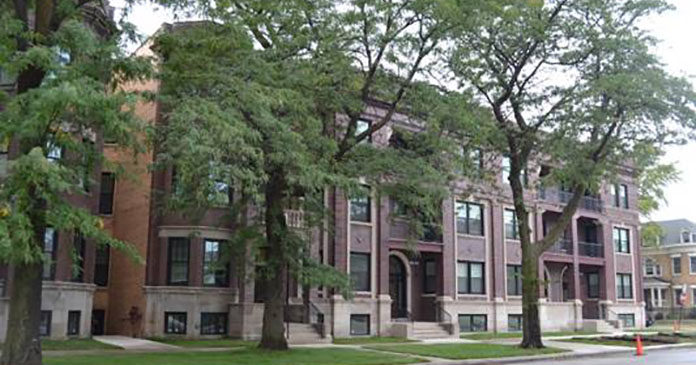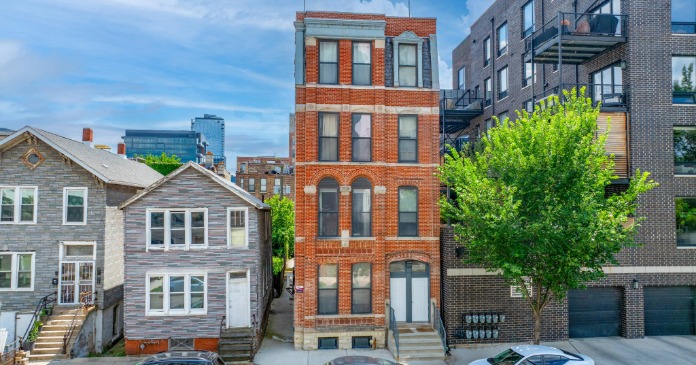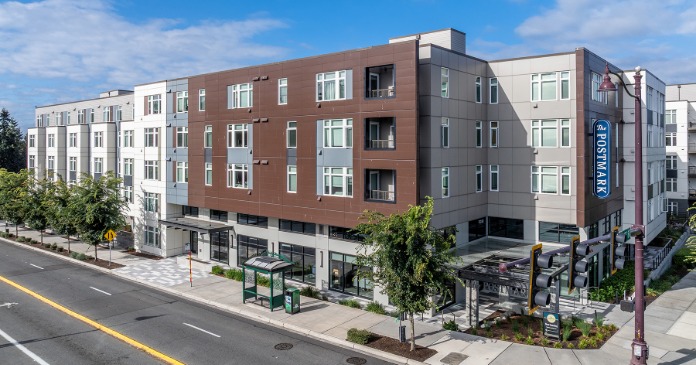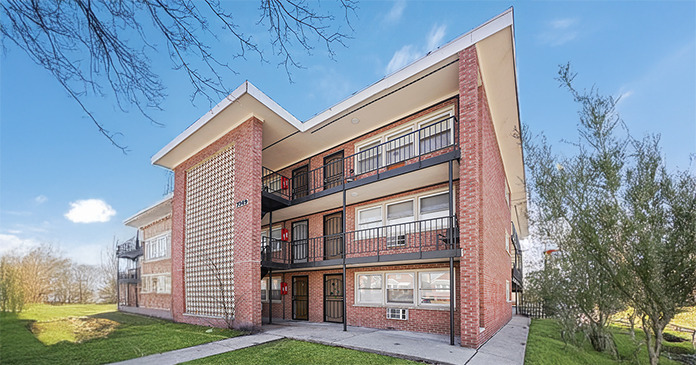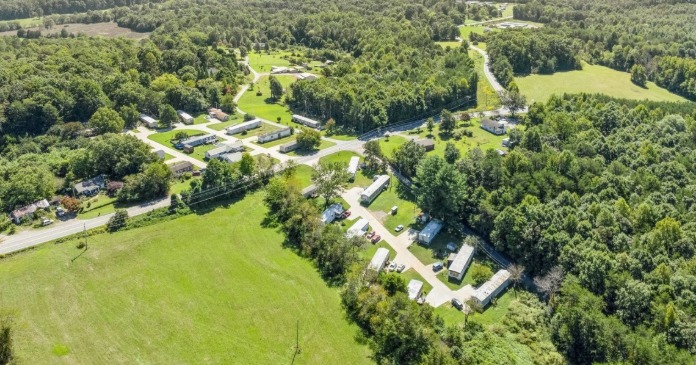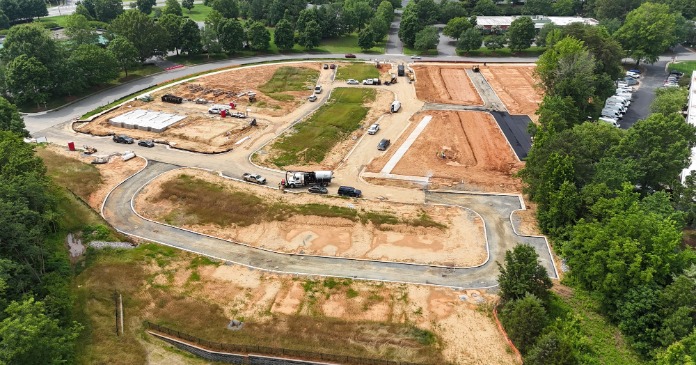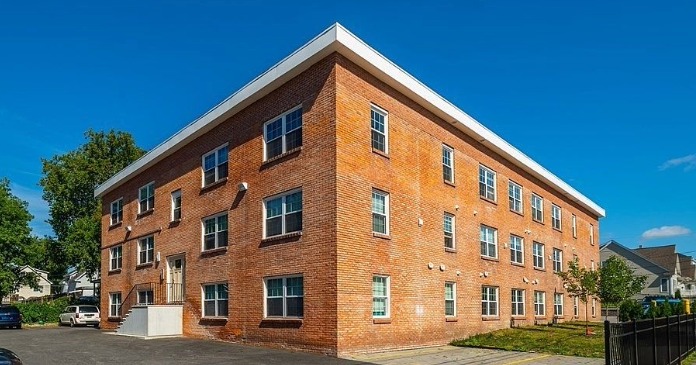The U.S. Department of Housing and Urban Development (HUD) and the Advisory Council on Historic Preservation (ACHP) today announced Chicago’s Rosenwald Courts Apartments, once home to boxer Joe Louis, and Olympian Jesse Owens, as the recipient of the 2018 ACHP/HUD Secretary’s Award for Excellence in Historic Preservation.
This annual award recognizes developers, organizations, and agencies for successfully advancing historic preservation, while providing affordable housing and/or expanded economic opportunities for low- and moderate-income families and individuals.
The rehabilitation of the 1920’s-era housing project retains many historic features of the original development while modernizing the space to include 239 one- and two- bedroom apartments, 40,000-square-feet of office space, and 16,000-square-feet of retail stores. The restoration conducted by Rosenwald Apartments, LP, which includes Iceberg Development, Evercore Companies, RCAP LP, Lightengale Group, and Roos Enterprises, is an activity center of Chicago’s Bronzeville neighborhood.
“This is a wonderful example of how we can preserve affordable housing and our history at the same time,” said HUD Secretary Ben Carson. “This housing development has deep roots on Chicago’s South Side and will continue to be a vital presence in the Bronzeville neighborhood for generations to come.”
“Against all odds, repeatedly avoiding the wrecking ball, the historic Rosenwald Courts Apartments has been rehabilitated and put back into use as a vital community anchor,” said ACHP Chairman Milford Wayne Donaldson, FAIA. “The project utilized HUD and City funding along with Historic Tax Credits to ensure the entirety of the apartment complex was renovated, preserving the historic aspects of the buildings and grounds, and providing an affordable place for people to live.”
The complex was originally developed in 1929 by Sears & Roebuck founder Julius Rosenwald with 454 units and provided much-needed quality housing for African-American families in Chicago during a time of segregation and limited housing options.
There was a long road to the re-opening of the former Michigan Boulevard Garden Apartments. Rosenwald Courts sat vacant for many years and was saved repeatedly from demolition. In 2002, Rosenwald was included on Landmarks Illinois’ Most Endangered Historic Places in Illinois list; in 2003, the National Trust for Historic Places America’s 11 Most Endangered Historic Places list; and in 2007, Preservation Chicago’s list of the Chicago 7 Most Endangered Buildings.
Additionally, there were many failed attempts at rehabilitation but through persistent support from community leaders, local residents, preservationists, and HUD the purchase of Rosenwald Apartments came to fruition.
The $132 million financing package utilized two HUD funding sources: Neighborhood Stabilization Funds and Public Housing Capital Funds. The $8.5 million in NSP funds were used to acquire and rehabilitate the building and the Public Housing Capital Funds provided $17 million to return 60 public housing units to the neighborhood.
These funding sources accounted for almost 20 percent of the total development costs of the project. Through its HUD funding, the Chicago Housing Authority supported the 120 senior units at the property. Other integral financing came through $25 million in Tax Increment Financing (TIF) funds from the City of Chicago and $21 million in federal historic tax credits.
The significant exterior repairs retained many historic qualities – the main building’s terra-cotta portals that connect the courtyard to the street, installation of more than 2,500 new windows matching the historic windows, and restoration of the historic 47th Street storefronts. The historic axial pathways in the courtyard were retained and augmented with new plantings, benches, grills, bike racks, and dog runs. A new seating area was added at the south end of the courtyard to serve both residents and retail patrons.
When Rosenwald reopened in fall of 2016, it provided much-needed affordable housing and new retail and office spaces. The rehabilitation created 360 construction jobs and 40 permanent jobs for local residents.


